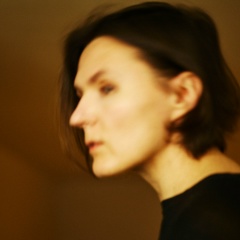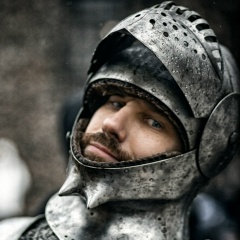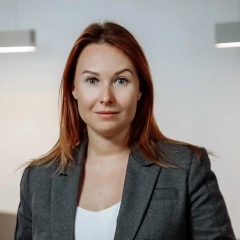https://t.me/hobbes_channel/414
Вырезали главный, с нашей точки зрения, момент интервью Путина Владимиру Соловьеву. На интересующий всех вопрос о том, кто и как в России принимает важнейшие политические решения, Путин отказывается отвечать и произносит: «Это такая сакральная вещь».
Российская политическая система никогда не отличалась транспарентностью, но, с точки зрения дискурс анализа, заявление Путина — это событие и безусловный поворотный момент его правления. Президент прямо называет свою власть «сакральной».
Подобный идеологический поворот означает, что российская власть теперь подразумевает другие цели собственного существования. И теперь речь не о реанимации Ялтинской системы.
Теперь проект ещё более масштабный — отрицаются принципы Просвещения, которые исторически не имеют никакого отношения к «созданным американцами для собственной выгоды правилам игры».
Российская власть декларирует своей целью непримиримую борьбу с модерном. Причем именно не с постмодерном, наступлением которого пугают российские СМИ, а с тем самым модерном, который пришел под знаменем рационализма и многократно демонстрировавший, что власть — не сакральна.
Интересно, что отрицание сакральности власти — это конституирующий принцип для большинства современных государств. Поэтому в случае с плоть от плоти постсоветским государством подобные изменения дискурса очень напоминают процесс самопоедания. Да, корни таких заявлений кроются в самом сокровенном желании позднесоветской номенклатуры не только приватизировать, но самое главное — передать потомкам капиталы без каких-либо препятствий. Но в результате, когда произведенная модерном политическая структура начинает уничтожать свои самые глубинные идеологические основания, она явно рискует потерять устойчивость, которая позволяет ей допускать такой не сочетаемый с самой собой дискурс.
Вырезали главный, с нашей точки зрения, момент интервью Путина Владимиру Соловьеву. На интересующий всех вопрос о том, кто и как в России принимает важнейшие политические решения, Путин отказывается отвечать и произносит: «Это такая сакральная вещь».
Российская политическая система никогда не отличалась транспарентностью, но, с точки зрения дискурс анализа, заявление Путина — это событие и безусловный поворотный момент его правления. Президент прямо называет свою власть «сакральной».
Подобный идеологический поворот означает, что российская власть теперь подразумевает другие цели собственного существования. И теперь речь не о реанимации Ялтинской системы.
Теперь проект ещё более масштабный — отрицаются принципы Просвещения, которые исторически не имеют никакого отношения к «созданным американцами для собственной выгоды правилам игры».
Российская власть декларирует своей целью непримиримую борьбу с модерном. Причем именно не с постмодерном, наступлением которого пугают российские СМИ, а с тем самым модерном, который пришел под знаменем рационализма и многократно демонстрировавший, что власть — не сакральна.
Интересно, что отрицание сакральности власти — это конституирующий принцип для большинства современных государств. Поэтому в случае с плоть от плоти постсоветским государством подобные изменения дискурса очень напоминают процесс самопоедания. Да, корни таких заявлений кроются в самом сокровенном желании позднесоветской номенклатуры не только приватизировать, но самое главное — передать потомкам капиталы без каких-либо препятствий. Но в результате, когда произведенная модерном политическая структура начинает уничтожать свои самые глубинные идеологические основания, она явно рискует потерять устойчивость, которая позволяет ей допускать такой не сочетаемый с самой собой дискурс.
https://t.me/hobbes_channel/414
Cut out the main, from our point of view, the moment of Putin's interview with Vladimir Solovyov. The question of who and how makes the most important political decisions in Russia is of interest to everyone, Putin refuses to answer and says: "This is such a sacred thing."
The Russian political system has never been characterized by transparency, but from the point of view of the discourse analysis, Putin's statement is an event and an unconditional turning point of his rule. The President directly calls his power “sacred”.
This ideological turn means that the Russian government now implies other goals of its own existence. And now we are not talking about the resuscitation of the Yalta system.
Now the project is even more ambitious - the principles of the Enlightenment are denied, which historically have nothing to do with "the rules of the game created by the Americans for their own benefit."
The Russian government declares its aim to be an irreconcilable struggle against modernity. Moreover, it is not with the postmodernism, the coming of which the Russian media scare, but with the very modernity that came under the banner of rationalism and has repeatedly demonstrated that power is not sacred.
Interestingly, the denial of the sacredness of power is a constitutive principle for most modern states. Therefore, in the case of the flesh of the flesh of the post-Soviet state, such changes in discourse are very similar to the process of self-eating. Yes, the roots of such statements lie in the deepest desire of the late Soviet nomenklatura not only to privatize, but most importantly - to transfer capital to descendants without any obstacles. But as a result, when the political structure produced by modernity begins to destroy its deepest ideological foundations, it clearly risks losing the stability that allows it to admit such a discourse that is incompatible with itself.
Cut out the main, from our point of view, the moment of Putin's interview with Vladimir Solovyov. The question of who and how makes the most important political decisions in Russia is of interest to everyone, Putin refuses to answer and says: "This is such a sacred thing."
The Russian political system has never been characterized by transparency, but from the point of view of the discourse analysis, Putin's statement is an event and an unconditional turning point of his rule. The President directly calls his power “sacred”.
This ideological turn means that the Russian government now implies other goals of its own existence. And now we are not talking about the resuscitation of the Yalta system.
Now the project is even more ambitious - the principles of the Enlightenment are denied, which historically have nothing to do with "the rules of the game created by the Americans for their own benefit."
The Russian government declares its aim to be an irreconcilable struggle against modernity. Moreover, it is not with the postmodernism, the coming of which the Russian media scare, but with the very modernity that came under the banner of rationalism and has repeatedly demonstrated that power is not sacred.
Interestingly, the denial of the sacredness of power is a constitutive principle for most modern states. Therefore, in the case of the flesh of the flesh of the post-Soviet state, such changes in discourse are very similar to the process of self-eating. Yes, the roots of such statements lie in the deepest desire of the late Soviet nomenklatura not only to privatize, but most importantly - to transfer capital to descendants without any obstacles. But as a result, when the political structure produced by modernity begins to destroy its deepest ideological foundations, it clearly risks losing the stability that allows it to admit such a discourse that is incompatible with itself.
У записи 1 лайков,
0 репостов,
28 просмотров.
0 репостов,
28 просмотров.
Эту запись оставил(а) на своей стене Сергей Подосенов






















